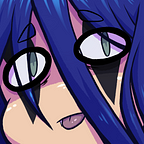Breaking the Flask: Studying Imperialism in Fullmetal Alchemist
Imperialist themes are strong in Hiromu Arakawa’s manga, going so far as to be personified through it’s primary antagonist.
[The following article contains spoilers for Fullmetal Alchemist, specifically chapters 74 and 75.]
Originally introduced through its somewhat sub-par 2003 anime adaptation, Fullmetal Alchemist was the first manga I would ever read, sought out when a Google search informed me its ending was wildly unlike the confusing disaster of it’s anime counterpart. I almost instantly fell in love. Its art style captured me, its characters felt grounded despite their fantastical nature, but it was the story that always enthralled me. I had never before found a comic that had a narrative depth on par with the fantasy novels I read in my free-time. Fullmetal Alchemist went beyond it’s fantasy-action romp to explore military-state government conspiracies and civil unrest and racism, all while still maintaining the guise of a young-adult’s comic series.
Even 18 years later, its themes surrounding the threat of imperialism, as well as nationalism and military corruption are worth exploring. Indeed, this is the focus of my own personal research project. Through the lens of five major story arcs and how five major characters react within them, I am seeking to analyze how imperialism is represented in the narrative of Fullmetal Alchemist, and how its world and characters are impacted by it. In doing so, I hope to find not only a greater appreciation of the story as a whole, but also find an application to real-world understandings of imperialism.
As of right now, the characters I have been focusing my research on are the primary protagonists, Edward and Alphonse Elric, as well as vengeful victim of an ethnic genocide, Scar, disaffected military colonel Roy Mustang, and the primary antagonist of the story, Homunculus — also referred to in the story and within my writing as “Father”, and “Dwarf in the Flask”. It is this last character that I have found the most fascinating information on.
Initially, I found it easy to write off Homunculus’ actions as that of a villain seeking greater power. Desiring immortality, the power of God, greater knowledge, all of these things are not uncommon driving forces for fantasy villains, and that is simply how I viewed them upon my previous readings of Fullmetal Alchemist. However, after looking at these characters with themes of imperialism in mind, I came to see Homunculus as representative of something more than a big bad to be defeated. He is a metaphor for imperialism itself.
While examples of this can be seen throughout much of Fullmetal Alchemist, it is chapters 74 and 75 that showcase this metaphor most clearly. These two chapters focus on telling the origin of Homunculus, the “Dwarf in the Flask”; He is a man-made being with incredible knowledge that is unable to leave the glass container he calls home. Homunculus eventually forms a relationship with the slave — and future father of Edward and Alphonse — whose blood led to Homunculus’ creation, whom he dubbed “Van Hohenheim”. Homunculus is later consulted by the king of his country Xerxes, about obtaining immortality. He teaches those in leadership how to create a Philosopher’s Stone by using the lives of all the citizens in the land. The chapter ends when the country-wide alchemical transmutation results in Hohenheim obtaining the Philosopher’s Stone instead, and Homunculus getting a body of his own and escaping his flask.
Assuming that Homunculus represents a country, particularly one with powerful influence, then the imperialistic symbolism is fairly direct. Homunculus was born — or built — from the blood of a slave, that he turns around and belittles for being stupid and powerless. He then dangles the desires of freedom and liberty, and implies that he and Hohenheim are seeking the same thing, all in order to take advantage of Hohenheim later. It is a tenant of imperialist empires to take advantage of the peoples that empire sees as “lesser”, despite often being built from the work those people are forced into doing. Additionally, much like a country wishing to expand its influence and break from its borders, Homunculus admits his greatest wish in life is to be free of his flask — he also finds this to be more desirable than having friends or family. Then, in chapter 75, Homunculus takes advantage of a corrupt, self-serving government to obtain the means to expand his power. His influence instigates civil unrest through the destruction of border cities disguised as “rebel attacks”, and government projects disguised as infrastructure benefiting the ignorant rural citizens, to keep suspicions from rising. And then, after the country of Xerxes has quite literally been absorbed by Homunculus and he has been allowed to escape his flask and leave his borders, he moves on to repeat this with another country, that of Amestris.
Homunculus’ existence is far more than just a power-hungry sociopath, but rather the personification of all the evils brought on by imperialism and imperialist nations. This can be further explored and likely expanded upon by looking at the rest of the Homunculi — those who call Homunculus “Father” — as well as by looking at how Homunculus continues to act when he turns his focus to Amestris. After this analysis, I am excited to see this study of imperialism continue, and how it is represented through the other characters I am exploring. I already have reason to believe that the other four characters are all representative of different kinds of people impacted by imperialist ventures, and it will be interesting to see if this assumption holds true.
As for now, I will continue to appreciate and applaud the sheer depth of Fullmetal Alchemist’s story and characters, and enjoy having the chance to study Hiromu Arakawa’s work in further depth for the future.
